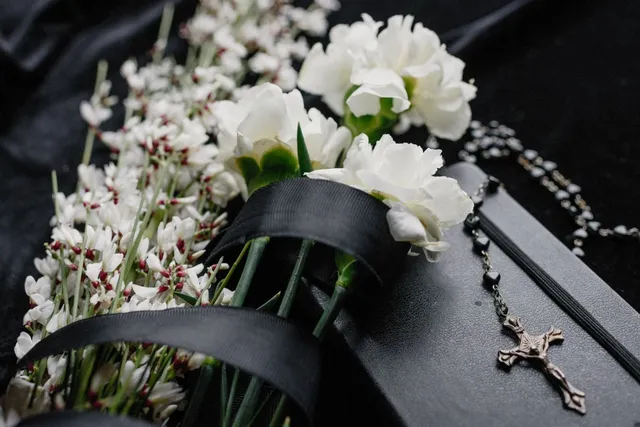Grief is one of the most painful human experiences. Whether we lose a parent, sibling, partner, child, friend, or even a pet, grief takes us through a wave of emotions that can feel overwhelming. During such a difficult time, many people turn to funeral rituals to help process their loss. But why do these rituals matter so much? What role do they play in helping us heal?
In this blog, we will explore the psychology behind grief and explain how funeral rituals provide comfort, structure, and meaning during painful times.
Understanding Grief and Its Emotional Impact
Grief is not just sadness. It is a complex mix of emotions, including shock, anger, guilt, regret, and sometimes even relief. People experience grief in different ways, and there is no one “right” way to grieve. Some people cry openly, while others feel numb. Some may want to be surrounded by others, while some prefer to be alone.
Psychologists have long studied grief and found that although everyone’s journey is unique, there are common stages or patterns. Elisabeth Kübler-Ross famously outlined five stages of grief: denial, anger, bargaining, depression, and acceptance. However, modern psychology recognises that grief does not always follow a clear path. Instead, people often move back and forth between emotions, sometimes revisiting certain feelings long after they thought they had passed.
This emotional turbulence can be exhausting. That’s where funeral rituals come in — offering a sense of order and support when everything feels chaotic.
The Role of Funeral Rituals in Healing
Funeral rituals serve many important psychological purposes. At their core, they provide a structured way to say goodbye and honour the life of the person who has passed. This structure is not just for tradition’s sake — it helps people begin to process their loss in a meaningful way.
Here are some of the key ways funeral rituals support the grieving process:
Acknowledging the Reality of Loss
One of the first and hardest steps in grieving is accepting that the person is really gone. Funeral services, whether religious or secular, help mark this transition. Seeing the coffin, hearing eulogies, or attending a burial makes the loss feel real. Without these moments, some people may struggle to move past denial.
Providing Emotional Support
Funeral homes gather family, friends, and the community together. Even when words fail, simply being present can offer comfort. Sharing memories, hugging, and offering condolences remind the grieving person that they are not alone. Funeral directors help coordinate these gatherings, ensuring everything runs smoothly so that the family can focus on being together.
Offering a Sense of Meaning
Funerals give us a way to honour the life that was lived. Through stories, symbols, music, and rituals, we reflect on the person’s impact and what they meant to us. This can bring a sense of peace and closure, helping mourners shift from focusing solely on the loss to appreciating the person’s life and legacy.
Allowing for Expression of Grief
Funeral rituals create a safe space where people can express their sorrow openly. In many cultures, it is expected that people will cry or show strong emotions at a funeral. This public mourning can be very healing, as it gives people permission to feel their grief fully rather than holding it in.
The Importance of Funeral Directors
Behind every meaningful funeral is the work of compassionate and experienced funeral directors. These professionals guide families through the many decisions that must be made, often when they are feeling overwhelmed and vulnerable.
Funeral directors help organise everything from the choice of coffin and flowers to arranging the service, transportation, and burial or cremation. But their role is more than just logistical. A good funeral director understands the emotional needs of grieving families and provides gentle guidance, helping shape a ceremony that reflects the values, beliefs, and wishes of the deceased and their loved ones.
Their expertise can reduce stress for the family, allowing them to focus on their emotions and connections rather than worrying about practical details. In this way, funeral directors play a quiet but essential role in supporting the healing process.
Cultural and Personal Variations in Funeral Rituals
It is important to remember that funeral rituals vary widely across cultures and individuals. What brings comfort to one family may not resonate with another. Some cultures emphasise large public ceremonies, while others prefer intimate family gatherings. Some traditions focus on religious rites, while others create personalised, secular celebrations of life.
Funeral directors are trained to respect these differences and help families design services that align with their needs and values. By honouring cultural and personal preferences, funeral rituals become not just a routine but a deeply meaningful experience that supports healing.
Moving Forward After the Funeral
While the funeral marks an important step in grieving, healing does not end there. Grief often lingers long after the service is over. Support groups, counselling, spiritual practices, and ongoing connections with friends and family all play a role in helping people adjust to life without their loved one.
Still, the funeral lays the foundation. It helps people take the first steps in acknowledging their loss, expressing their grief, and beginning to imagine a future where they carry their memories forward.
Whether rooted in tradition or shaped by personal wishes, funerals remind us that even in our deepest sorrow, we are not alone. Through coming together to remember and honour those we have lost, we find the strength to carry on.







